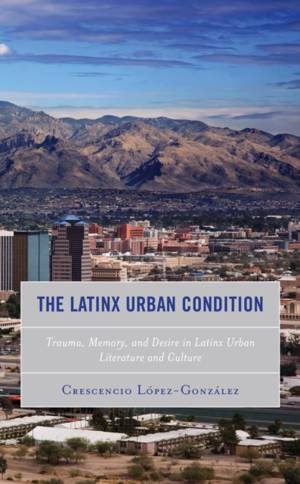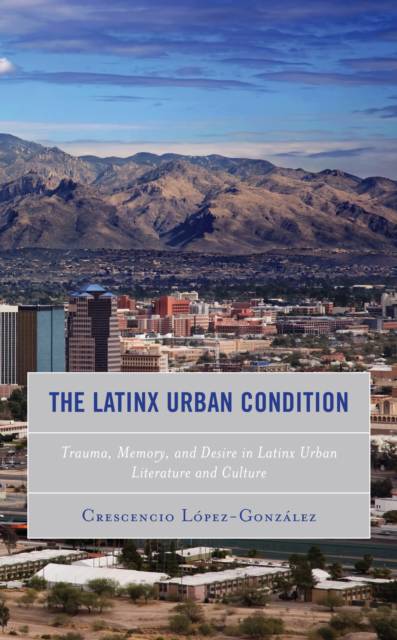
- Afhalen na 1 uur in een winkel met voorraad
- Gratis thuislevering in België vanaf € 30
- Ruim aanbod met 7 miljoen producten
- Afhalen na 1 uur in een winkel met voorraad
- Gratis thuislevering in België vanaf € 30
- Ruim aanbod met 7 miljoen producten
Zoeken
The Latinx Urban Condition
Trauma, Memory, and Desire in Latinx Urban Literature and Culture
Crescencio Lopez-Gonzalez
€ 160,45
+ 320 punten
Uitvoering
Omschrijving
The Latinx Urban Condition brings together interdisciplinary cultural theory and U.S. Latinx urban literature into conversation, focusing on the realities and urban experiences of Latinx living in major cities in the United States from the 1960s to the present. The manuscript focuses on analyzing the works of Latinx authors who write about the city in which they were raised and how growing up in these environments shaped their lives, their communities, and their future. Their fictional work helps us understand how the human and cultural tapestry of the Latinx community is inextricably connected to the spatial transformations taking place in many cities across the country, most notably within the cities the authors write about in their narratives. This is particularly true when the city is represented through a fictional narrative, which is full of detailed information about the realities of structural inequality in education, residential segregation, urban cultural identity, discrimination, experiences of exile, oppression, urban desires, integration, and disillusionment. The main purpose is to analyze the symbolic realities lived by the characters in order to understand how Latino families and communities are experiencing displacement under instituted neoliberal policies, a process known as development and progress or gentrification.
Specificaties
Betrokkenen
- Auteur(s):
- Uitgeverij:
Inhoud
- Aantal bladzijden:
- 180
- Taal:
- Engels
- Reeks:
Eigenschappen
- Productcode (EAN):
- 9781498570268
- Verschijningsdatum:
- 17/01/2020
- Uitvoering:
- Hardcover
- Formaat:
- Genaaid
- Afmetingen:
- 152 mm x 229 mm
- Gewicht:
- 435 g

Alleen bij Standaard Boekhandel
+ 320 punten op je klantenkaart van Standaard Boekhandel
Beoordelingen
We publiceren alleen reviews die voldoen aan de voorwaarden voor reviews. Bekijk onze voorwaarden voor reviews.











